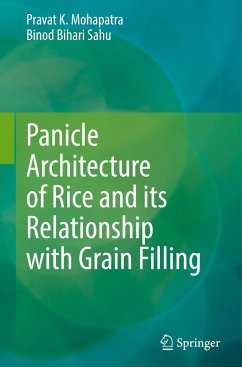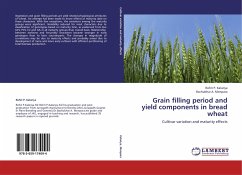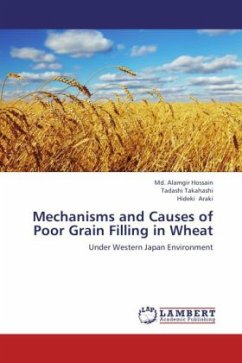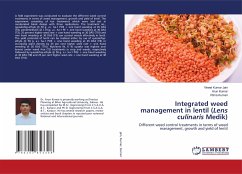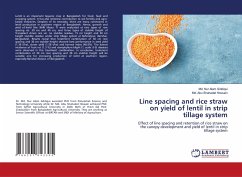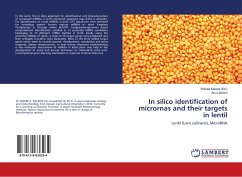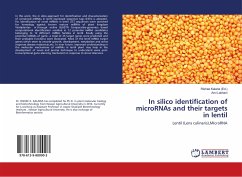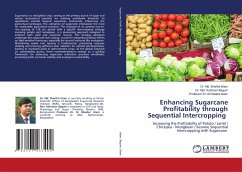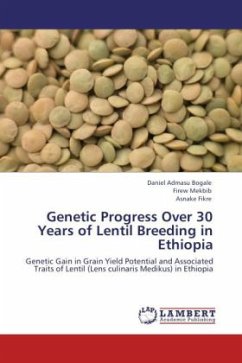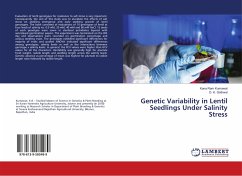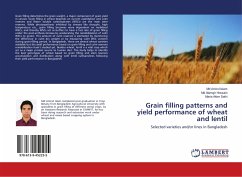
Grain filling patterns and yield performance of wheat and lentil
Selected varieties and/or lines in Bangladesh
Versandkostenfrei!
Versandfertig in 6-10 Tagen
27,99 €
inkl. MwSt.

PAYBACK Punkte
14 °P sammeln!
Grain filling determines the grain weight, a major component of grain yield in cereals. Grain filling in wheat depends on current assimilation and culm reserves and Water soluble carbohydrates (WSCs) are the main stem reserves. While photosynthesis inhibited by stresses like drought, high temperature etc., grain filling becomes more dependent on mobilized WSCs, and thereby WSCs act as buffers to have a fast rate of grain filling under the post-anthesis stresses by accelerating the remobilization of culm WSCs to grains. This amount of culm reserves is estimated by monitoring the difference in c...
Grain filling determines the grain weight, a major component of grain yield in cereals. Grain filling in wheat depends on current assimilation and culm reserves and Water soluble carbohydrates (WSCs) are the main stem reserves. While photosynthesis inhibited by stresses like drought, high temperature etc., grain filling becomes more dependent on mobilized WSCs, and thereby WSCs act as buffers to have a fast rate of grain filling under the post-anthesis stresses by accelerating the remobilization of culm WSCs to grains. This amount of culm reserves is estimated by monitoring the difference in culm dry weight or by measuring culm WSC content during grain-filling period. In Bangladesh, there are several wheat varieties available but the yield performance based on grain filling and culm reserves remobilization hasn't studied yet. Besides wheat, lentil is a vital crop which act as a major protein source to human diet. This study helps to identify the best genotypes of wheat based on grain filling and stem reserves accumulation and distribution along with lentil cultivars/lines following their yield performance in Bangladesh.



